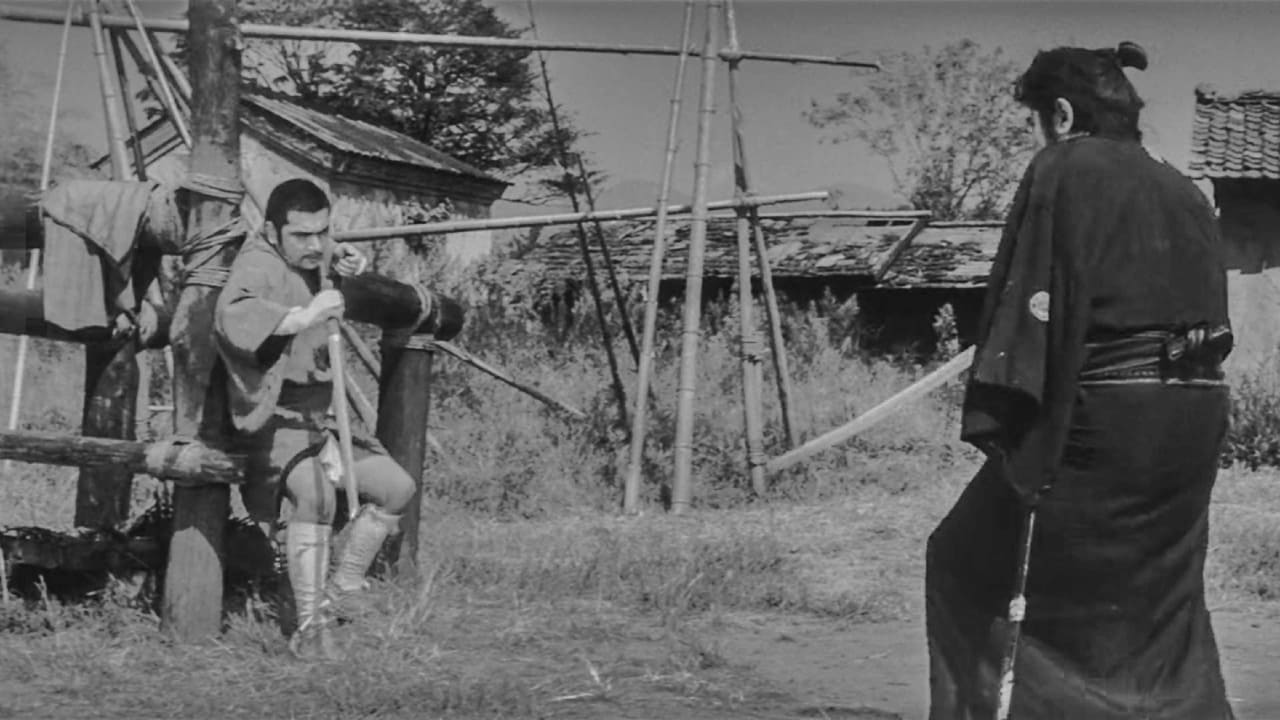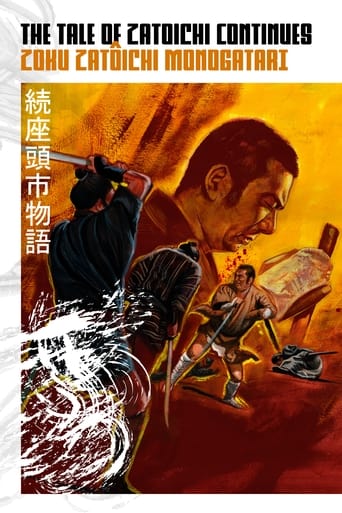



Let's be realistic.
Fantastic!
Crappy film
a film so unique, intoxicating and bizarre that it not only demands another viewing, but is also forgivable as a satirical comedy where the jokes eventually take the back seat.
View MoreWith continuity directly linking it with its immediate predecessor ( released only five months and three weeks prior ) , and also holding a perfect 100 percent score on rotten tomatoes, this beautifully photographed ( in high contrast black and white, like its predecessor ) Zatoichi film is as good as that film was, even if the end scene is too abrupt, although it also shows just how quickly and efficiently Zatoichi fights. A double-edged sword, pun completely intended.Hypnotically beautiful looking, I could easily tune out the plot, and just enjoy the visuals, and impressive swordplay. Sadly though, this second film is also the final film in this series to be shot in black and white, as the numerous continuation films were in colour.
View MorePart 2 of the Zatoichi film is good cinema and a compelling story. New details of Zatoichi's life are revealed, but at times it feels as though Katsu Shintaro and director Mori Kazuo have trouble breaking out of the original story of film number 1 to move on to newer, fresher territory. Have patience, the Zatoichi series does break into new and fertile ground in later films.Some people love trivia. Zatoichi's brother in the film (Yoshiro of Nagisa) is in fact played by Katsu Shintaro's actual brother, Wakayama Tomisaburo (credited here with the name Jo Kenzaburo). Katsu and sometime Zatoichi director Misumi Kenji will work together to produce and direct the best of the Baby Cart series starring Wakayama Tomisaburo as Itto Ogami in the 1970s.Another common question is the early films is, where did Zatoichi get his sword? Zatoichi buries his sword in film number one with Hirate Miki. It's now one year later, so presumably Zatoichi has replaced the cane sword from film number 1 with a new sword that looks very similar. During the climatic scene in film number 2, Zatoichi drops his sword and hustles his now wounded brother into the safety of a creek, leaving his sword behind. He makes his last kill in film number 2 with another person's sword. Does Zatoichi somehow recover this sword to use it in film number 3? There are some inconsistencies in the early films. At the beginning of the project, nobody in their wildest dreams could have believed that the series would eventually grow to 26 films.Film number 2 is somewhat of a let-down compared to the great first film. It is a good film, with interesting information about Zatoichi's youth. Zatoichi also finds love (at least for one night).
View MoreThis movie is, I guess, the first of the very long & very excellent zato-ichi series starring the incomparable Shintaro Katsu who also starred in the shorter but every bit as impressive if quite different series: The Razor. I lived in San Francisco in the 1960s & 1970s & used to go watch these films every week at the Japanese theater in the old "Japan Town". Loved them then, love them now. This film in particular is a classic in every way: cinematographically it looks like Eisenstein - every shot a classic. The compositions, textures & tonalities are breathtakingly beautiful. Dramatically, it's every bit as gripping as Yojimbo or the best Ford westerns (e.g. Stagecoach). And finally the sword-fight choreography - None better. Terrific movie!
View MoreI love samurai movies, but the Zatoichi series takes a period of lawlessness and violence in Japan from the lofty realm of the Samurai nobility down to the ranks of the common people. They are great "slice of life" dramas about what life was like for a man who seems to have a devastating handicap during a time of turmoil which is very much like the wild, wild West in American culture. The offset to Zatoichi's handicap (his blindness) is that he is blessed with incredible perceptive abilities which include a level of swordsmanship that seems to surpass even Musashi Miyamoto's legendary skills. The time period appears to be several hundred years after Musashi lived in the 1500's, otherwise Zatoichi might have found his match - for no one else in Japan, no matter how many adversaries attack him simultaneously, can prevail over the blind master's incredible swordplay. I like this movie because it shows the fencing style in great detail, and the viewer can truly appreciate Zatoichi's martial arts abilities. The story is also interesting, as it reveals some of the mysterious masseur's family background. This is the best movie in the series to see first because Zatoichi is very young in this story, and several of the events help explain events in later episodes.There's a great deal of humor underlying the action, and Shintaro Katsu does an excellent job of portraying this quirky, noble, and ultimately very appealing character.
View More